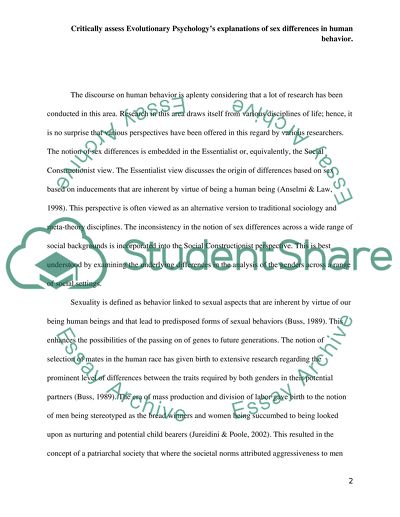Cite this document
(“Critically assess Evolutionary Psychology's Explanations of Sex Essay”, n.d.)
Retrieved from https://studentshare.org/psychology/1450500-critically-assess-evolutionary-psychologyyies
Retrieved from https://studentshare.org/psychology/1450500-critically-assess-evolutionary-psychologyyies
(Critically Assess Evolutionary Psychology'S Explanations of Sex Essay)
https://studentshare.org/psychology/1450500-critically-assess-evolutionary-psychologyyies.
https://studentshare.org/psychology/1450500-critically-assess-evolutionary-psychologyyies.
“Critically Assess Evolutionary Psychology'S Explanations of Sex Essay”, n.d. https://studentshare.org/psychology/1450500-critically-assess-evolutionary-psychologyyies.


